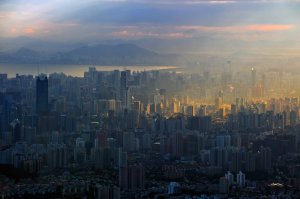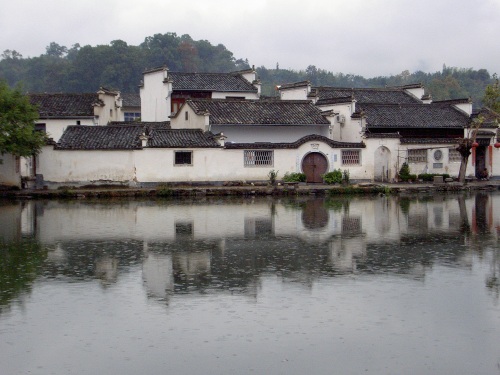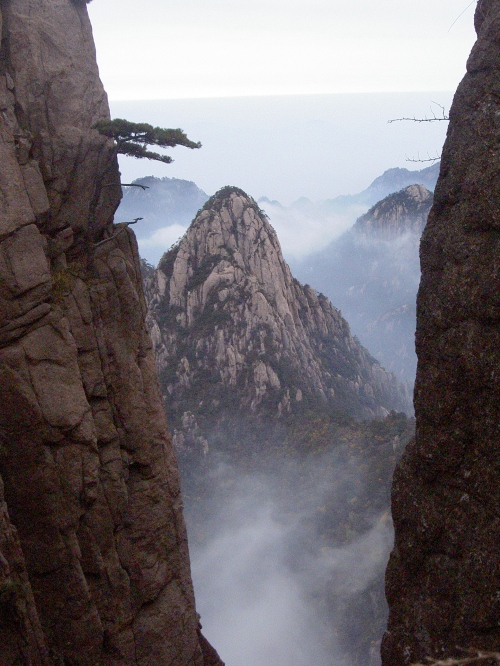
A bus at FoxConn (富士康) where nine suicides have been reported (Source: Southern Weekend)
Recently, Foxconn has enjoyed the type of PR that no company ever wishes to find itself in – scrutiny of its labor practices splashed across global headlines — equating work in the company’s 300,000 person-manned force to indentured servitude — leading to what is now the ninth death at the company’s Shenzhen manufacturing plant. The fact that the Taiwanese-based Foxconn (a fact that seems to be only glossed over in most accounts I’ve read — UK’s Telegraph is the only non-Chinese media I’ve read that makes that distinction clearly) happens to be one of the largest IT product suppliers in the world, including Apple’s now legendary line of iPods, iPhones and iPads, adds to the sensationalism of the story.
During a four-week long undercover assignment with Southern Weekend (南方周末), a reporter lives and breathes the FoxConn life, which includes hours and hours of standing on the factory floors on a daily basis. The intensity and focus on machine-like production is evident from the very beginning of the written account, where a worker comments that “When you’re standing and something drops, and you have to bend down to get it, you hope that there will always be something that falls, that you will never have to stand up. Having a minute to lie down, that would be an indescribable luxury.” (站着的时候,有个东西掉了弯腰去捡,恨不得一直有东西掉,一直不用站起来。要是可以躺一分钟,那就是天大的享受。”)

Shenzhen - 30 years ago. Back then, it was a small fishing village with a population of nearly 25,000 (Image source: CNReviews)

Shenzhen today is a growing metropolis with a population of nearly nine million. (Image source: CNReviews)
Even in a city like Shenzhen, whose prosperity has been built in the last 30 years on the back of its manufacturing prowess and whose skyline is dotted with factories supplying goods to global brands, FoxConn’s story has gained a certain notoriety.
However, while each of these stories carry an important piece of the story about life in a Chinese factory, there is another thread that deserves attention — what of FoxConn employee’s relationships with the engineers, product designers, and other employees that companies like Apple send over to oversee implementation and production?
In number, they account for only a mere fraction of Foxconn’s city/factory ecosystem. Yet the power (status) they wield seems disproportional to the roles they are meant to serve. An anecdote that continues to most vividly come to mind is an account from an Apple engineer who frequented Foxconn’s Shenzhen operations about how the company once closed off a restroom to its Chinese workers, labeling it “VIP Only”, because an American Apple engineer had commented on the smell. One comment from an Apple employee had closed off access to a bathroom — not even a lounge, board room, or area that would be considered an employee perk — to the vast majority of the people there.
Even without the suicides, what kind of culture and work environment is being created? What responsibility — if any — do companies like Apple have in ensuring working standards comparable to those it practices at home? While the two companies are distinct legal and operational entities, when one talks about “work culture,” how far does that extend?
From the factory worker perspective, what do these type of actions say about management and about their places in the working hierarchy?
(I call this post a prelude in part because these are just the initial thoughts I’ve had — more will be added as further research and interviews are done)

 Dr. Kai-Fu Lee is a name that is increasingly associated with the Chinese technology sector, having worked with companies like Apple, Microsoft, and most recently, with Google, to make their debuts in the Asian/Chinese markets. His blog, hosted at the popular Chinese Internet portal Sina.com, is one of the site’s most popular, with more than 18 million hits at the writing of this entry.
Dr. Kai-Fu Lee is a name that is increasingly associated with the Chinese technology sector, having worked with companies like Apple, Microsoft, and most recently, with Google, to make their debuts in the Asian/Chinese markets. His blog, hosted at the popular Chinese Internet portal Sina.com, is one of the site’s most popular, with more than 18 million hits at the writing of this entry.
